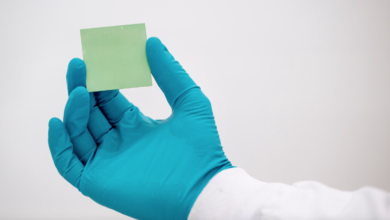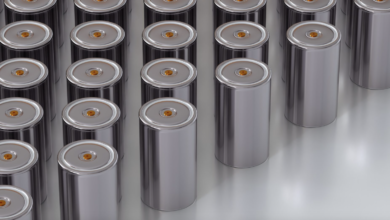Trenitalia presents Blues, the first triple-feed hybrid train
Blues was designed and built by Hitachi Rail
(Sustainabilityenvironment.com) – Regional rail mobility is ready for the technological leap. Piazza della Repubblica in Florence is the location where Trenitalia (Gruppo FS Italiane) presented its new Blues, the first hybrid triple power train. Part of the wider fleet renewal project, the special locomotive is one of the most advanced products in iron transport. The vehicle has a double propulsion system that allows it to switch from diesel to electric engines. The latter can be fed by the classic pantograph or by batteries. Why this choice? To adapt future regional trains to both electrified and non-electrified lines, ensuring lower emissions but higher performance.
“By shutting down the engines during the approach, stopping and restarting from the stations,” this technology can “guarantee a 50% reduction in fuel consumption,” the company explains in a press release. “In addition to a strong reduction in terms of CO2 emissions compared to current diesel trains, also ensuring maximum silence in the parking phases”. The technology will allow a maximum speed of 160 km/h with an acceleration of 1.10 m/sec2.
Recycled materials and reduced fuel consumption for the first triple-fuel hybrid train
Designed and built by Hitachi Rail, the hybrid train makes sustainability and innovation its strength. This is why, during the design phase, raw materials and materials were chosen that guaranteed high levels of recyclability (95%) after consumption. Particular attention has been paid to the reduction of internal consumption through solutions such as LED lighting and CO2 sensors for optimal management of air conditioning. Or even through the Green Drive (driver support information system) and Smart Parking (switching off some equipment to reduce energy consumption during the rest period).
The designers also placed the traction components on the roof of the train to expand the interior space and improve accessibility. From a technical point of view, these trains can accommodate up to 300 people seated in the composition of four carriages.
The revolution of regional transport on iron
In total 110 Blues trains are already planned – produced in the Italian plants of Pistoia, Naploli and Reggio Calabria – to be delivered in Valle d’Aosta, Friuli-Venezia Giulia, Tuscana, Lazio, Calabria, Sicilia, Sardegna.
“Today – said the president of the Tuscana region Eugenio Giani at the launch – we see a blues hybrid train of great quality and obvious perfection in terms of aesthetics and design. The national presentation takes place in Firenze because in the numbers there is the substance. Of the 110 new Blues, 44 arrive in Tuscana and the model is on display in Piazza della Repubblica, the symbol square of Roman Firenze that already 2000 years ago was the center of transport and connections of the city”. In 2022 the vehicle will arrive on non-electrified lines of the Sienese basin, the Faenza basin and the Val di Sieve.






